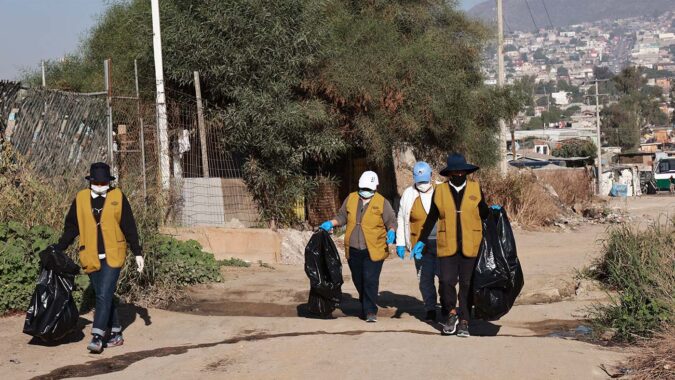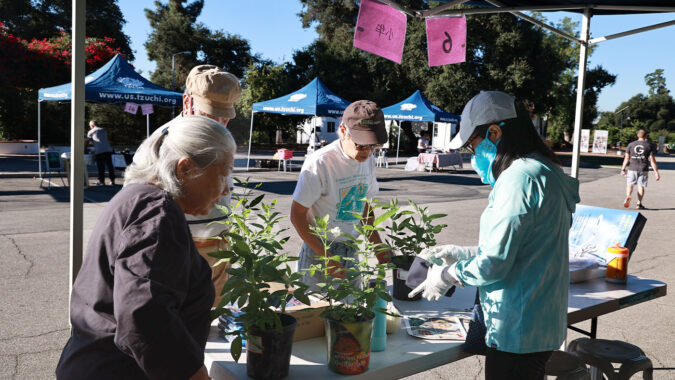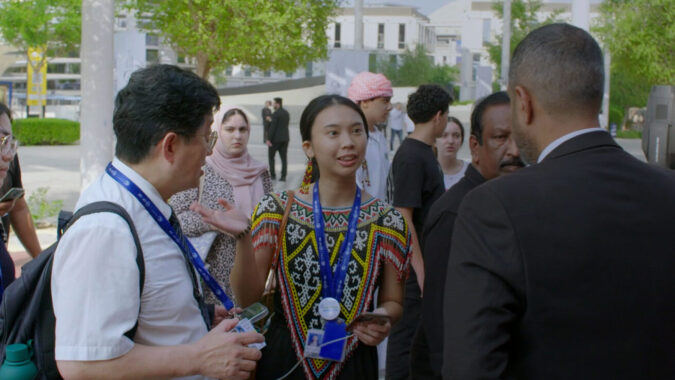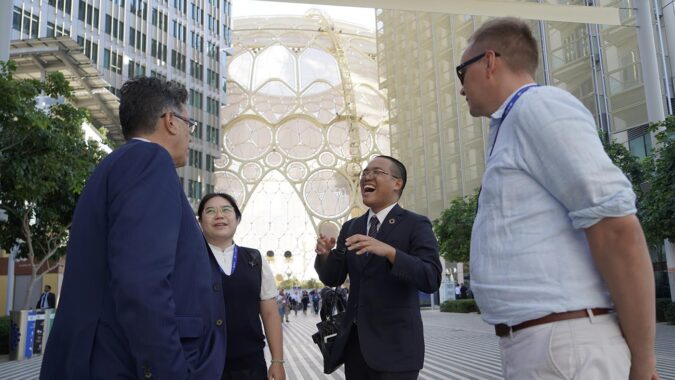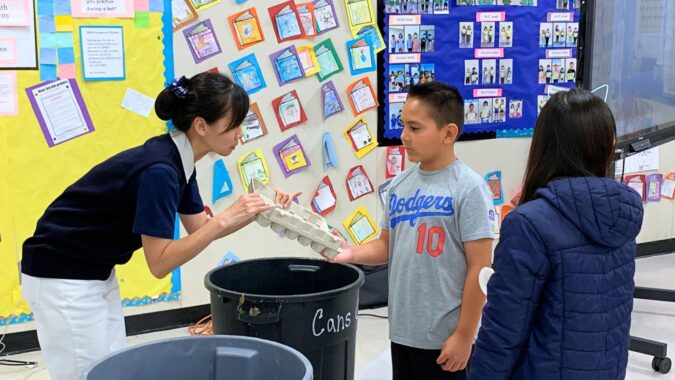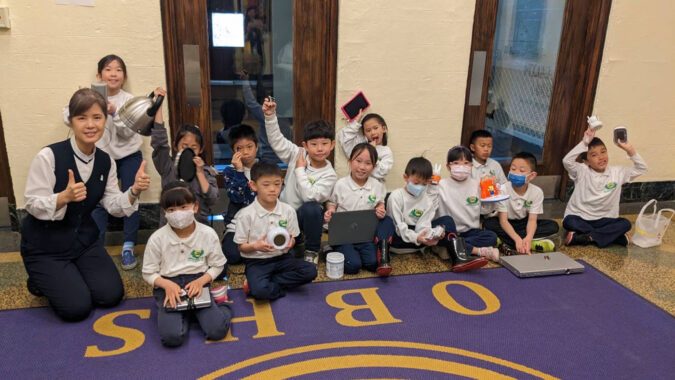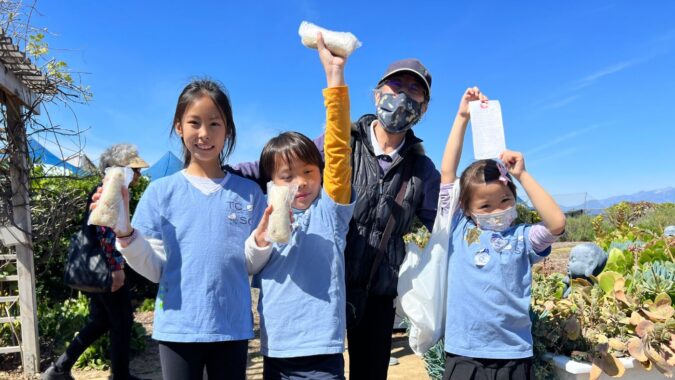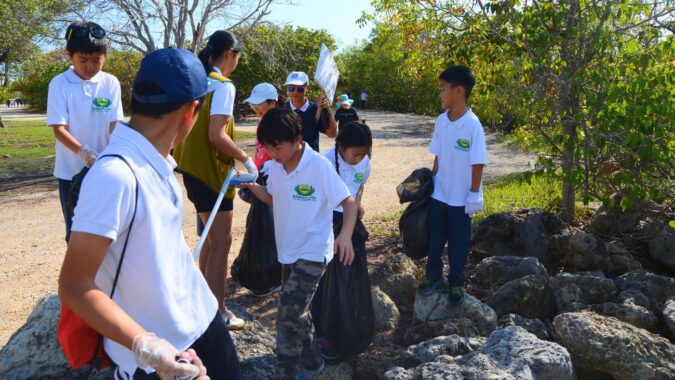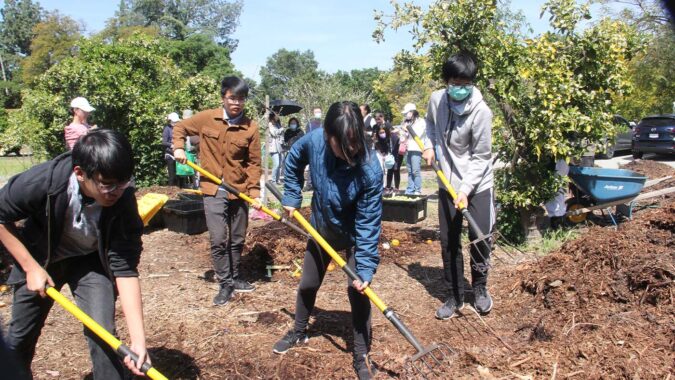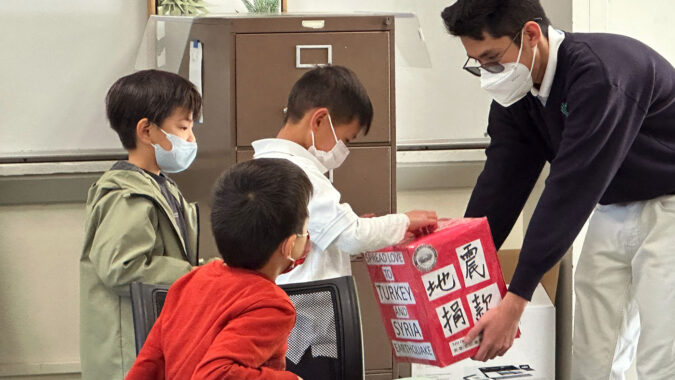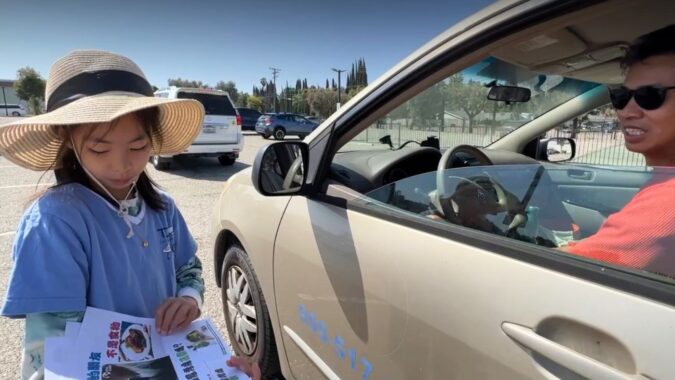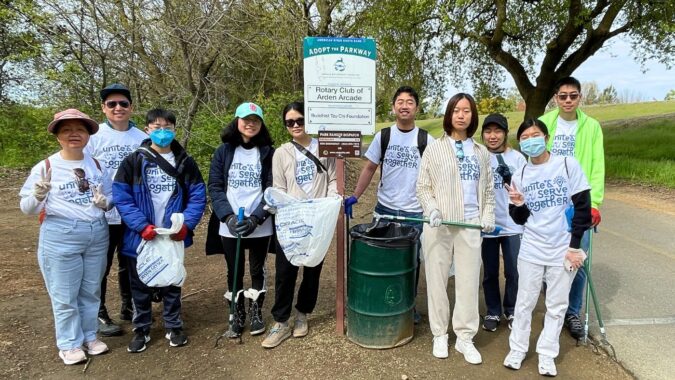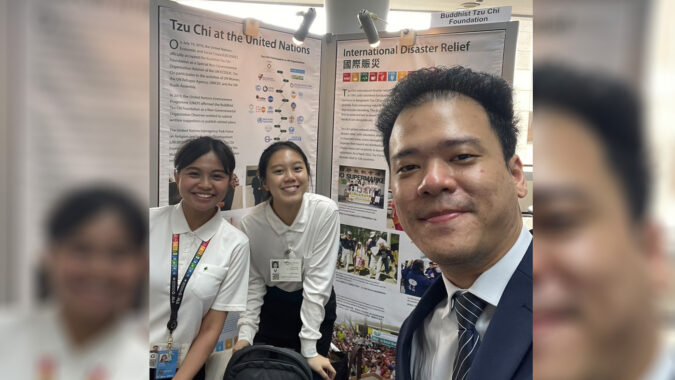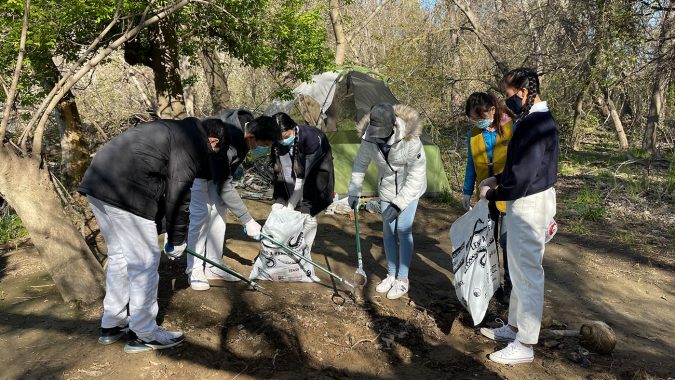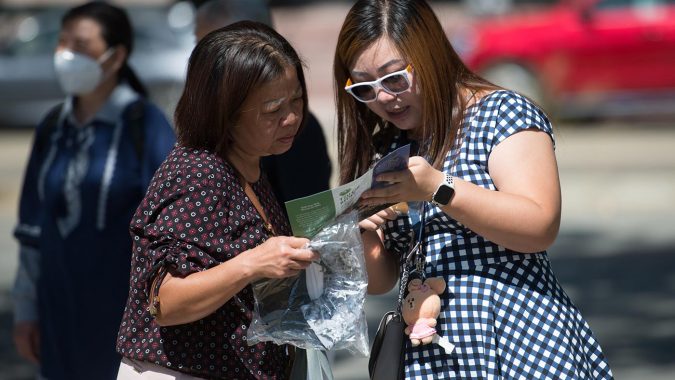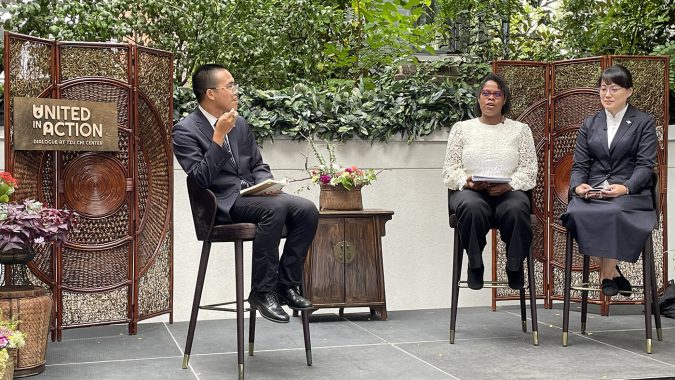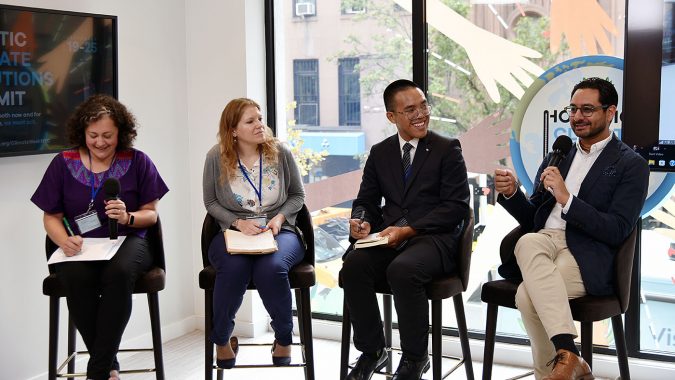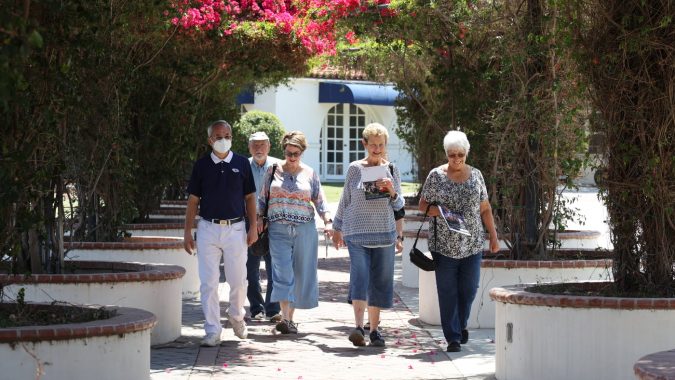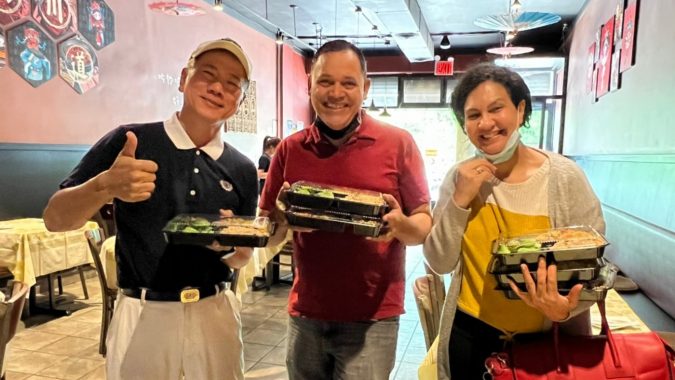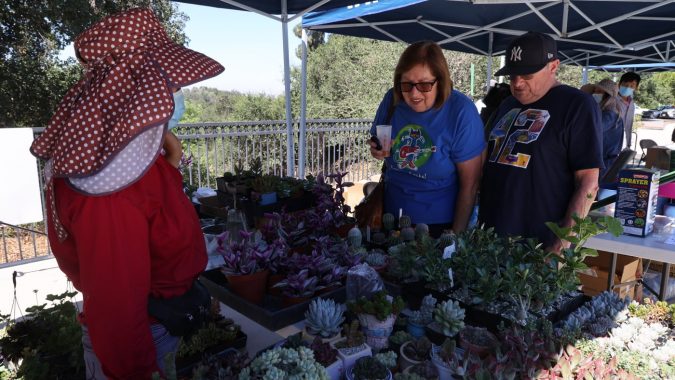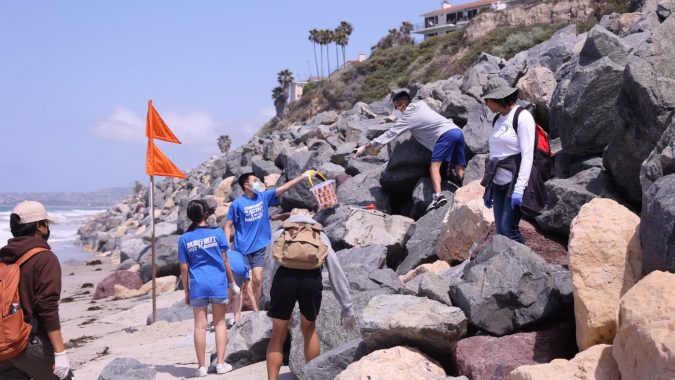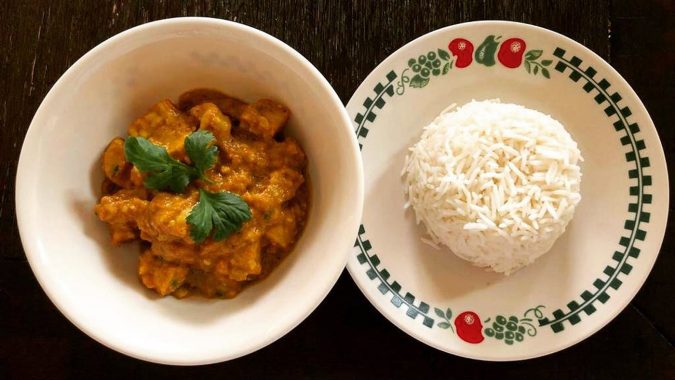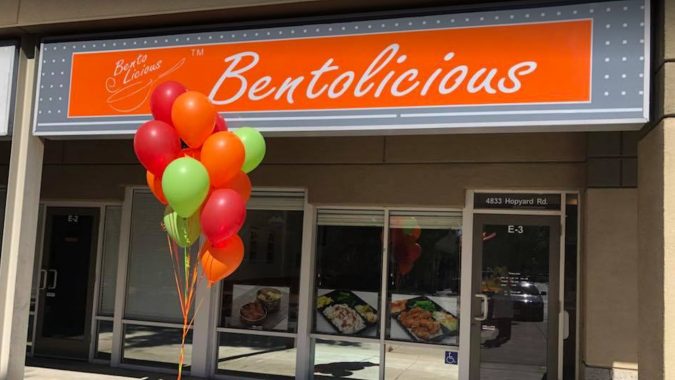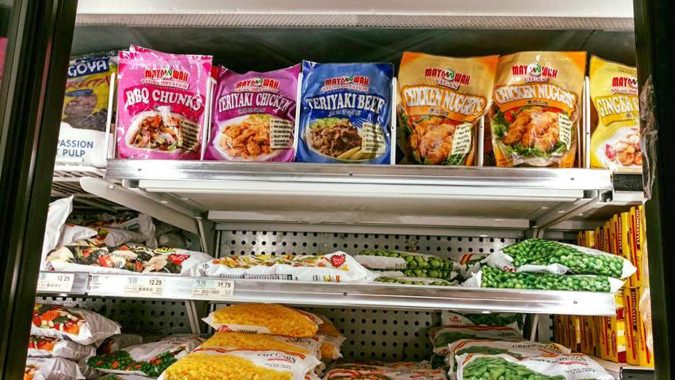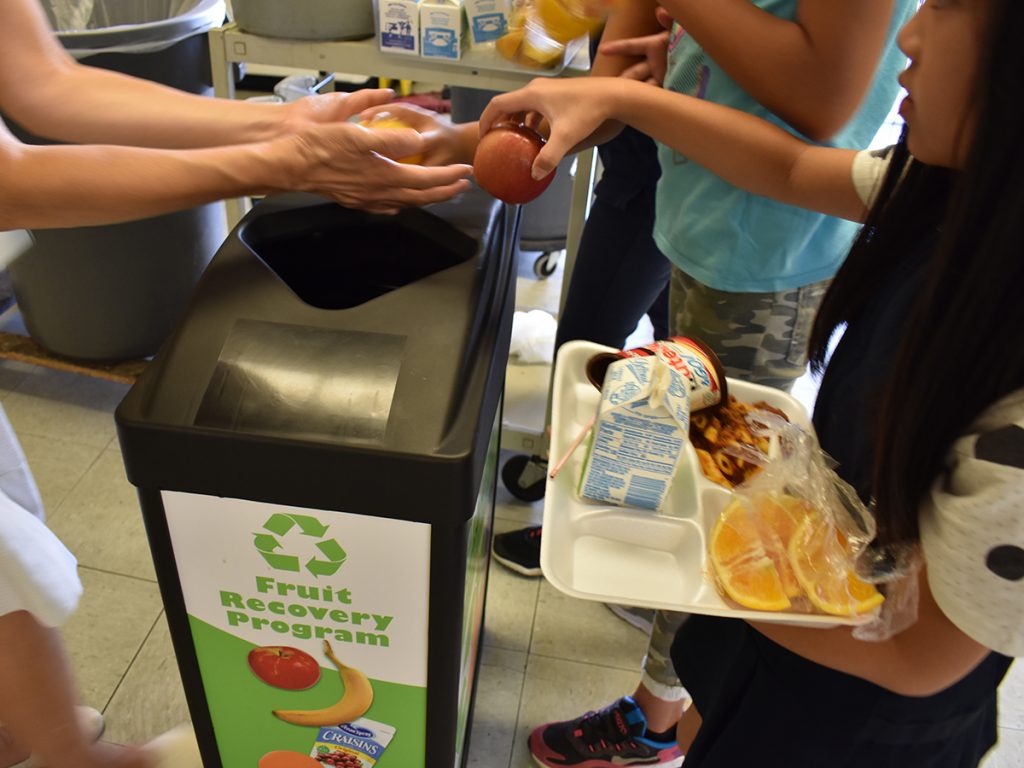
This past January, Tzu Chi USA’s El Monte service center launched a food recovery program initially implemented at San Gabriel High School, later expanding to a total of three schools in just a few months with the inclusion of Mark Keppel High School and Marguerita Elementary School. The program repurposes uneaten fruits including bananas, oranges, apples, and raisins from school campuses and delivers them to individuals in need throughout the community.
Student lunches at schools today, often consisting of bread, fruit, milk, and fruit, often generate high-calorie diets that children become accustomed to consuming. Thanks to the Tzu Chi food recovery program, students gain an awareness of the importance of conscious eating habits like food conservation and how to reduce wasted resources.
Repurposing Food from Good Thought
Mark Keppel High School launched the Tzu Chi food recovery program on September 17th. Principal Jeannie Gutierrez announced the beginning of this project to the student body during lunch, followed by a discussion on how recycling is beneficial to those in need as well as the health of the student body.
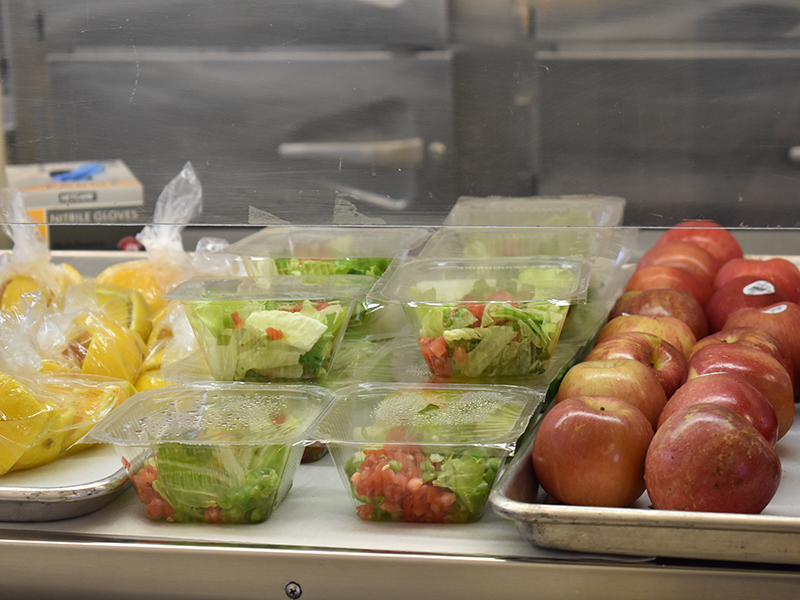
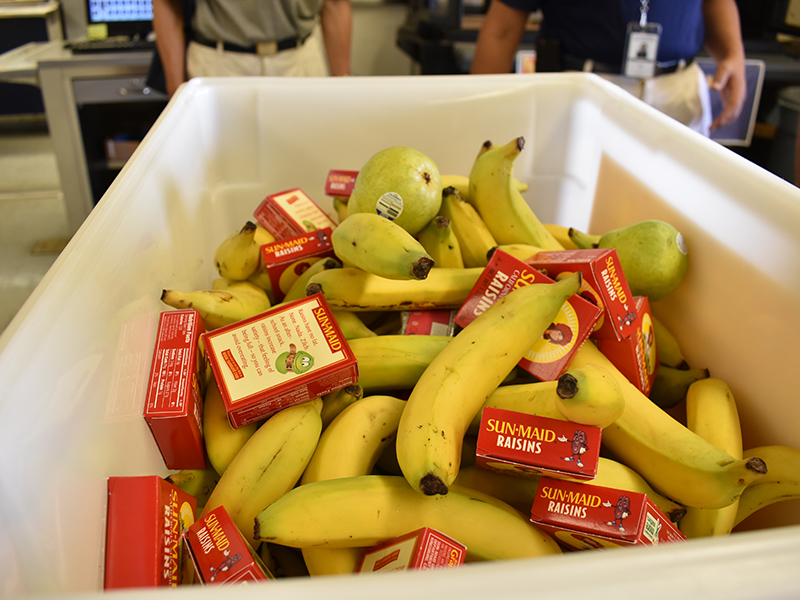
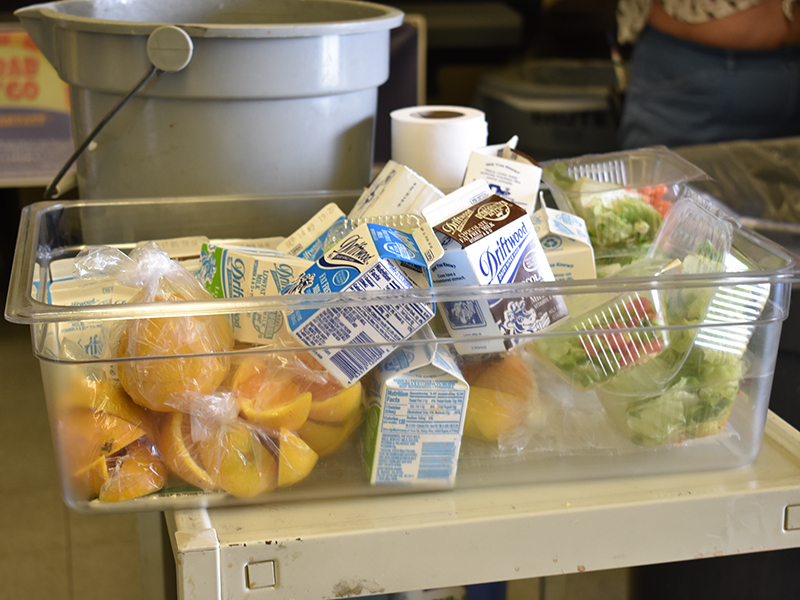
In addition to the school principal, many Alhambra Unified School District officials attended the project launch including Assistant Director Josephine Quach, Education Commissioner Wing Ho, and Director of Food and Nutrition Services Judy Huffeker. Together with the Tzu Chi team members Ciyuan Wu, Xingzi Lu, James Chen, and volunteers such as Sam Yang, Lixing Wei, Song Yang, and Wenfang Liao, the Alhambra Unified School District will collect food recycling every Wednesday and Friday.
Principal Jenny said, the other schools were motivated to join the recycle and repurpose food project because the students noticed that many edible foods are being wasted. She feels that this plan great. After the initial launch, Mark Keppel High School saw the importance of participating in the food recovery program. Students and teachers began to support and respond to the recycling process. Schools participating in this meaningful program are very happy to work with Tzu Chi.
A Source for Food Distributions
The food recycling plan began because students found uneaten food directly discarded at the school cafeteria, which has caused a lot of wasted food. In order to encourage students to cherish food, the program aims to increase recycling of unused and untouched food and utilize these resources towards Tzu Chi relief programs.
The cooperation between Tzu Chi and the Alhambra Unified School District started from Alhambra High School, where Tzu Chi mobile food pantry distribution was held. The foods obtained from the repurposing program will become the resources for our mobile food pantry distribution and will be given to families in need.
Ciyuan Wu, Tzu Chi volunteer
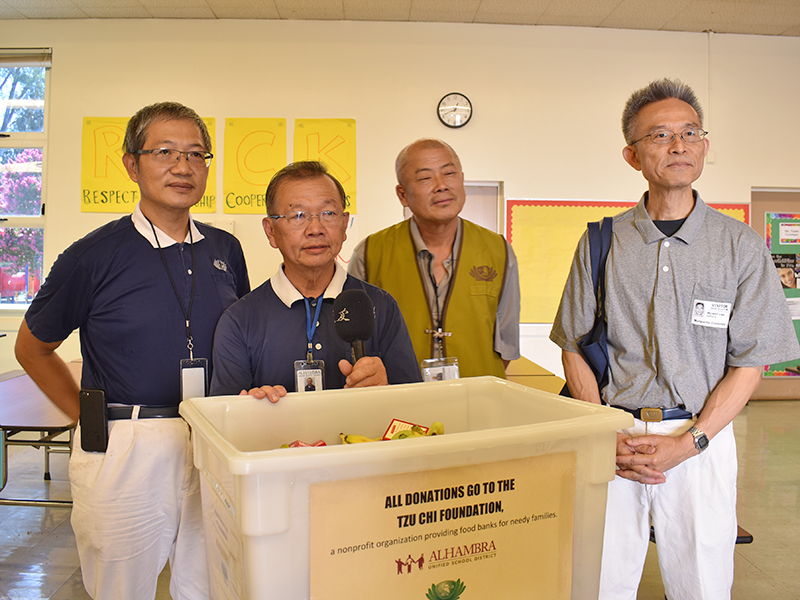
Head of the Tzu Chi service center in El Monte, James Chen said, Tzu Chi has been very successful in caring for low-income families in the community and has received much positive support in response. The school district wants to promote the food recovery program to the California government, and after hearing about the project, the California Education Bureau also believes that the plan should be implemented across the nation. The concept of how Tzu Chi utilizes resources has been widely recognized by the community, and feedback indicates that Tzu Chi should expand the program to other regions.
“When I was in high school, our school offered free breakfast and or lunch for qualified students. Many untouched foods were wasted in this case. I believe the food recovery program can teach the students to cherish food starting from Elementary school,” Tzu Chi volunteer Wenfang Liao said.
A Responsibility for the Community
AUSD Education Commissioner Wing Ho said that he is very happy to participate in the launching ceremony of the Tzu Chi food recovery program. This is the third school in the district to cooperate with the plan, educating students how to cherish food, recycle untouched food to those in need, and develop their social responsibility.
AUSD Assistant Director Josephine Kuo states that she is very happy to see the promotion of the food recovery program. As the school district becomes increasingly concerned about food waste, additional schools are encouraged to join the program.
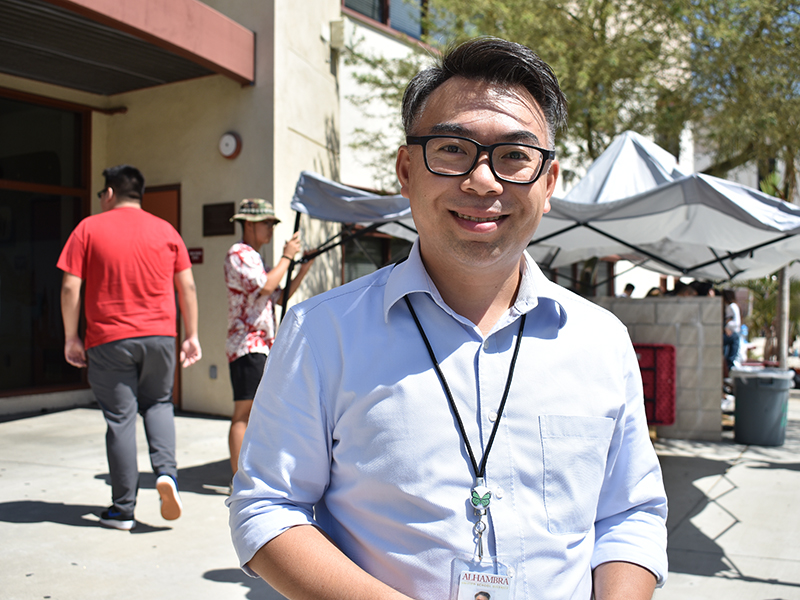
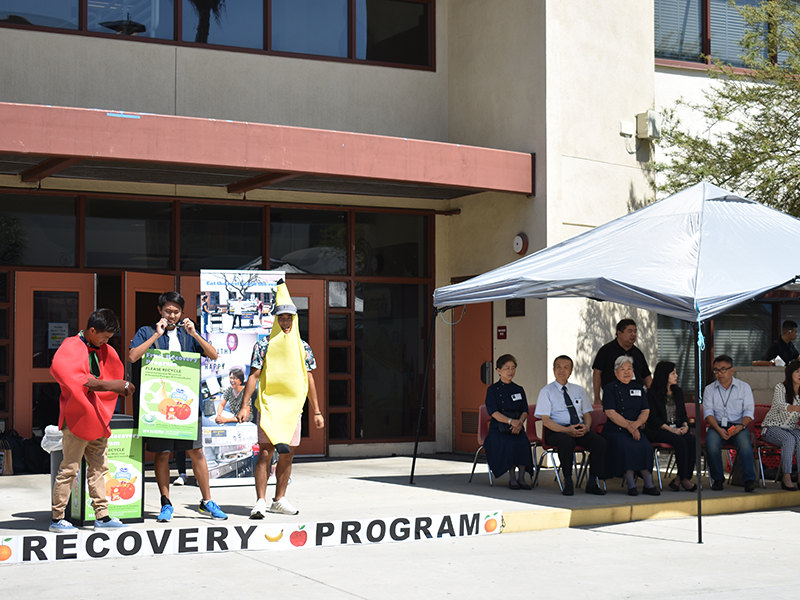
Cherishing Food Throughout the District
Principal Teresa Johnson of Marguerita Elementary School mentions that this school is the second school in the district to launch the food recovery program. Students are encouraged to keep the food they prefer, and to recycle the untouched foods that they don’t want to take home in the designated bins. Principal Teresa is very grateful for Tzu Chi’s help, and sees the program to be a great opportunity for educating students on the importance of food appreciation.
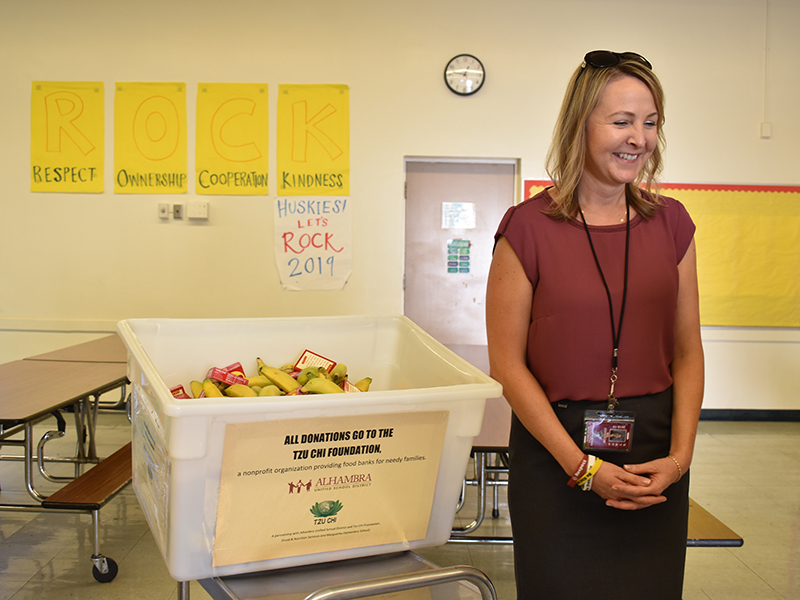
Director of Food and Nutrition Services Judy Huffaker, current executor of the Marguerita Elementary School’s food recovery program, is very happy to see the school start the food recovery program after San Gabriel High School and Mark Keppel High School.
Through the integration of additional recycling bins on campus, students are encouraged to recycle unused fruits, such as bananas, oranges, apples or boxed raisins. Judy explains that if students don’t want to eat or don’t want to take them home, they can place them in the recycling bins to be given to families in need, as opposed to being thrown away. This will not only protect the environment and reduce pollution but also serves as a gesture of appreciation for the food served at school. She hopes that this program can be extended to all schools within the district.
One high school senior, Clarice Wang said that she feels bad seeing so much food being wasted on campus. Clarice considers the recycling process to be a great solution for ensuring unwanted food can benefit people in need throughout the community and shows full support for the program.
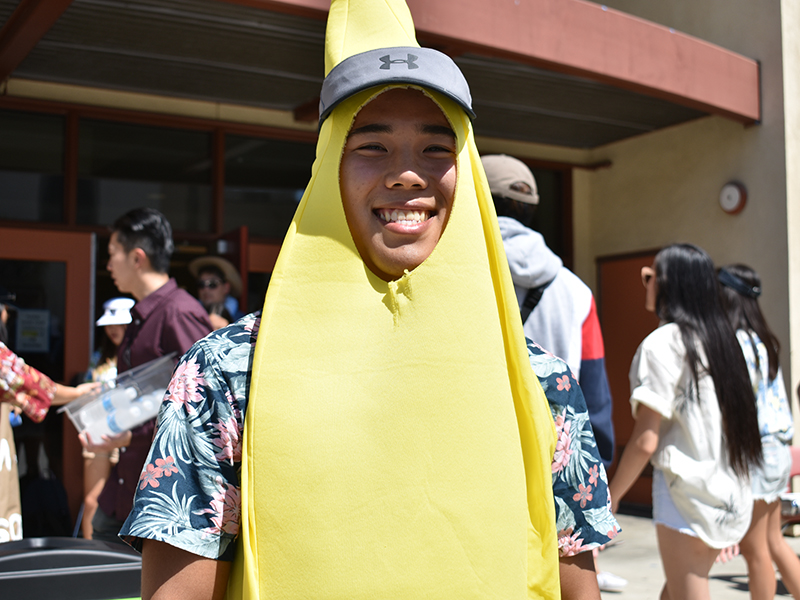
While promoting the food recovery program in a banana costume, senior Enzo Kim shares that he is happy to wear a banana costume to represent the food we eat today and to remind students not to waste food from now on.
Education is a key component of our compassionate relief efforts.
Learn more about our work in Alhambra, California

